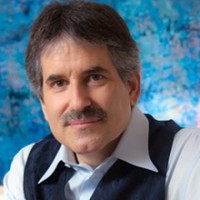In evolutionary spirituality, we are more interested in the future than we are in the present moment.
Why? Because the present moment has already happened, so there is not much that we can do about it. We’ve already arrived there. But the future, which always exists in the next moment, is something we can actually impact.
Much of postmodern East-meets-West spirituality is focused on the present: “Be here now”; “Be in the moment,” we are told. And while that may bring some release and relief in the short term, in an evolutionary context, we discover that the present isn’t really where the action is. The action is in the future, because the future is something that we can actually get involved in creating. The future is something that we can take responsibility for in the most exciting way possible. When we begin to care about evolution, we feel a passion for the future that is all-consuming.
When you experience this evolutionary impulse moving within you, you will feel an unbelievable excitement and thrill about life. Why? Because of what it is possible to create. So what we begin to thrive on, what excites us, what turns us on constantly, what lights up our hearts and our minds is the evolutionary or creative potential inherent in the present moment to build the future. And that thrill that we feel is not separate from the very impulse that initiated this entire creative process out of nothing fourteen billion years ago. In Evolutionary Enlightenment, that is how we define God: as the energy and intelligence that initiated the creative process. God is Eros; God is the urge to become, the engine behind the evolving universe. And that creative impulse is by its very nature, a utopian impulse—an urge toward perfection.
If you look at the creative impulse as it expresses itself at different levels, you can see that this is its nature. Often, if you meet an inspired artist, engineer, scientist, or musician, you will find that he or she is driven toward an ideal of perfection and trying to express that perfection through his or her particular talents. Even at the biological level, when the creative force expresses itself as the sexual drive, it is still a utopian yearning: “I want to meet the perfect partner, make perfect love, produce perfect children, have a perfect family, live a perfect life . . .” Even though it doesn’t usually work out that way, the creative impulse, by its very nature, is a reaching toward perfection. And since that impulse, which we experience at all levels of our being, is the same energy and intelligence that initiated the entire process, that means that God’s intention in creating the universe was and is a utopian impulse.
So in the teaching of Evolutionary Enlightenment, the most important step for the individual is simply awakening to and then aligning his or her own intention with the creative impulse, which is already a utopian impulse. It is not something that any one of us has to manufacture through philosophical or intellectual inquiry. It is the nature of the creative force itself.
Paradoxically, as you recognize the creative impulse as a drive toward perfection, it is important to understand that perfection can never be realized in the manifest world. You are never going to reach perfection; I’m never going to reach perfection. It’s not possible. Before anything happened, before something burst out of nothing, we could say there was perfection. So perfection exists in the unborn, unmanifest, unbecome state or place, which is the ground of all Being in every moment. But the minute God decided to create the universe, and took that leap from formlessness to form, perfection was left behind. And the whole creative process can be understood as the eternal striving for perfection that can never be reached. The entire Kosmos is endlessly reaching toward perfection, but destined never to get there. And as I teach it, this is the perfect posture to be assumed by the individual who wants to develop: We would strive to manifest that relationship to life in which we are always reaching for perfection, while knowing that we are never going to reach it. What a paradox! Why would you strive to reach something that you could never possibly reach? Because that puts you in the best possible position to evolve.
When you are constantly strive toward perfection, you have to stretch, you have to reach, you have to always keep moving. Too many of us tend to be lazy, self-indulgent, full of inertia—and because of this we waste so much of the precious time we have. We just want to rest, to take a break. But when we awaken to the evolutionary impulse, and assume this posture of reaching toward perfection, we have no time to waste, because there is always further to stretch. The promise of the future is endlessly compelling. When we die, when our time comes, I believe we will have to answer for what we did with our time on Earth. Did you waste the precious opportunity you had to consciously participate in the evolutionary process? Did you live a foolish and selfish life? Or did you really live passionately, with great intensity, as if the life of your soul depended on it? If you knew you had been living in that perfect posture, always reaching for unreachable perfection, you would be able to look God right in the eye and say, “I’m ready for the next round.”






Read 1 comment and reply